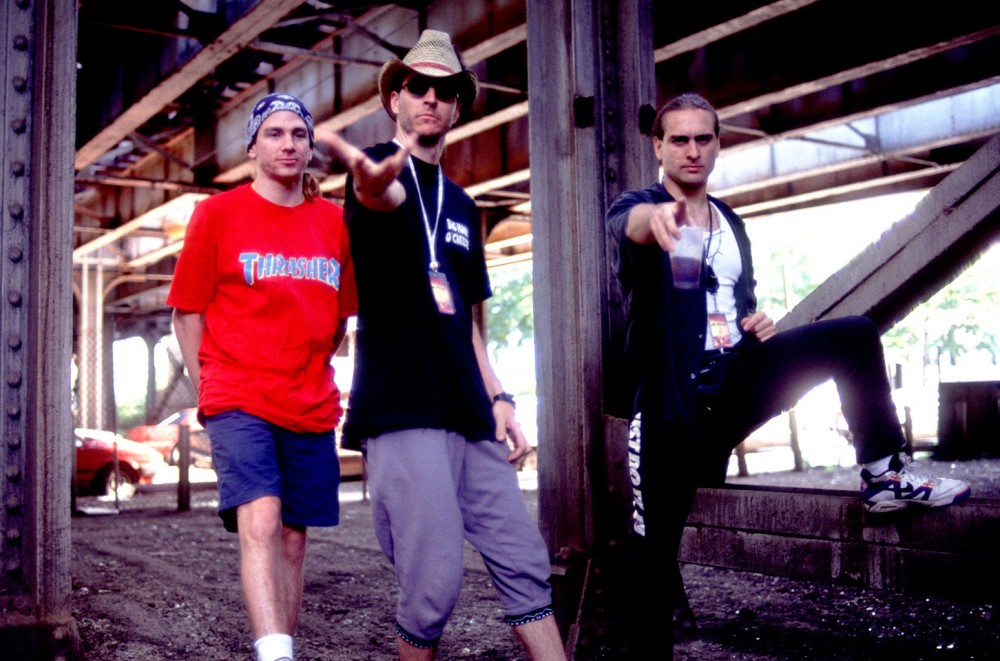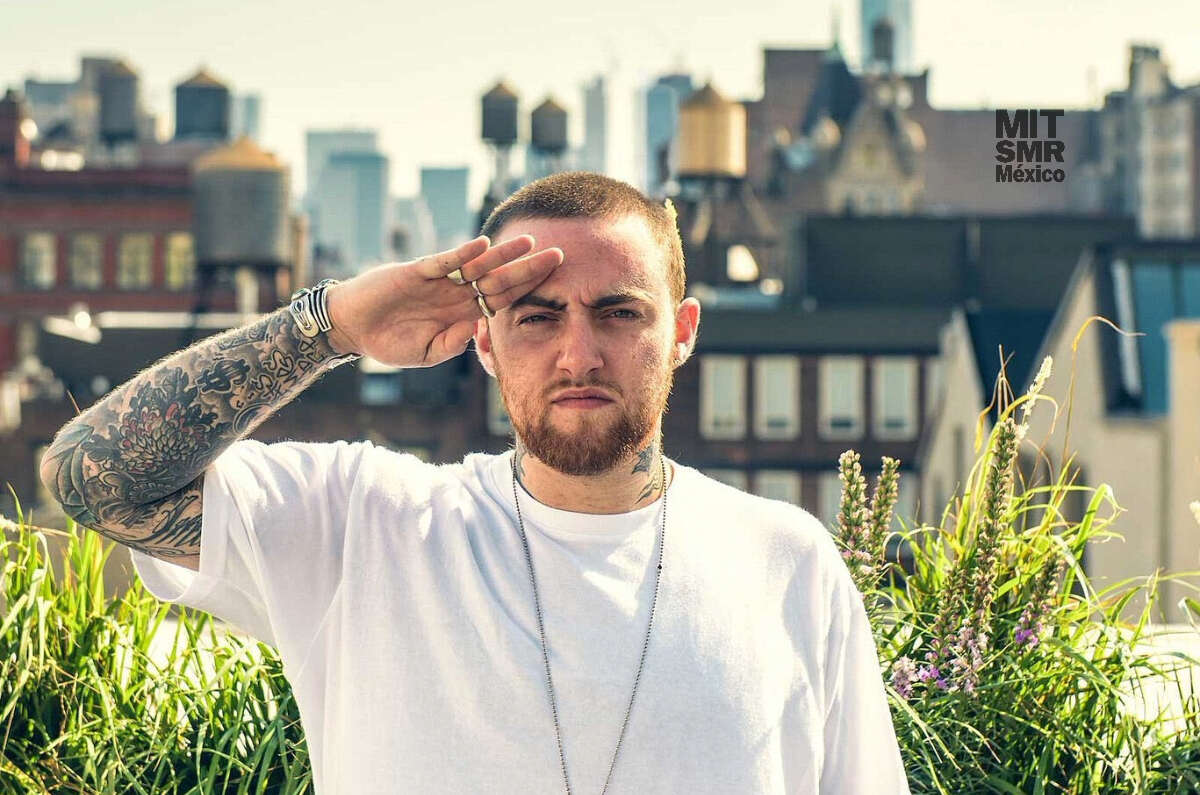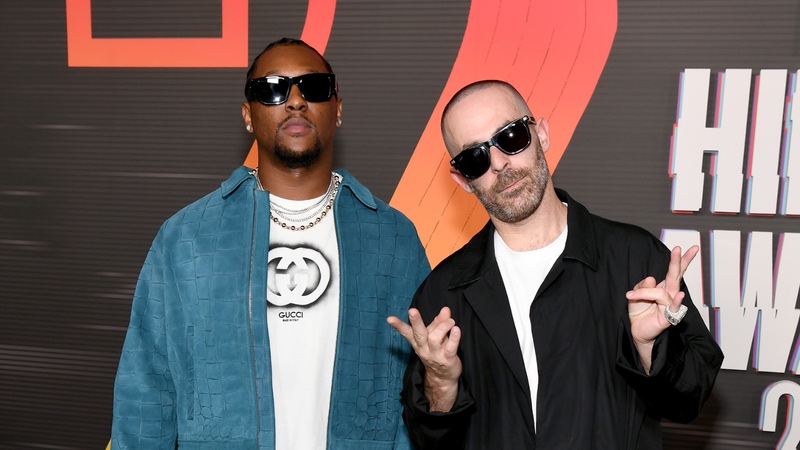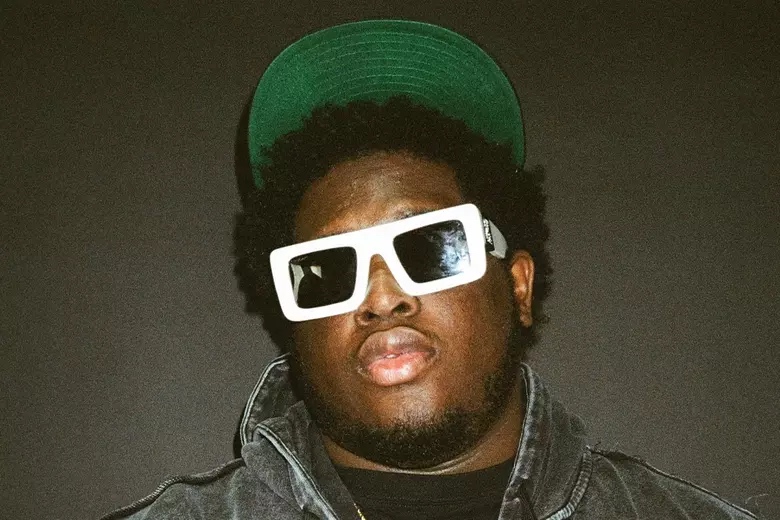As he preps his return to work in Oysterhead, the art-pop power trio he's in alongside Phish frontman Trey Anastasio and Police drummer Stewart Copeland, Les Claypool admits to letting the 30th anniversary of Primus's classic studio debut Frizzle Fry slip his mind.
Yet when he gets to reminiscing on those salad days in the earliest of early '90s, the bass wizard of the Bay Area is happy to reflect on when Primus rode the crest of California funk-metal's transformative first wave to become one of the bedrocks of Interscope Records' increasing dominance within the alternative rock market (their roster grew to include Nine Inch Nails, Helmet and Cop Shoot Cop).
The first major stop on this expressway to cult renown is the release of Frizzle Fry, cut to tape in record time with the money they made off the private press release of their 1989 live EP Suck On This. But these 13 tracks, though recorded on the cheap, signified the daring originality of Claypool, guitarist Larry "Ler" LaLonde and drummer Tim "Herb" Alexander as a trio unencumbered by the parameters of the funk metal template, veering closer to the Dadaist nature of a deconstructed Mr. Bungle than the tomfoolery of the Red Hot Chili Peppers. Pit-stirring songs like "John The Fisherman," "Pudding Time" and "Too Many Puppies" became anthems for a nation of skateboarders, prog kids and headbangers alike and remain crucial staples of the Primus concert experience to this day.
And while the trio has since evolved into an evergreen favorite of the jam band world, the Frizzle Fry era remains an important element in the story of this wildly original American band.
The first thing immediately noticeable when looking back at Frizzle Fry is how fast you guys had made it at the time. You were in the studio in December of '89 and the album was in stores by Feb. 7. Was the quick turnaround a conscious decision?
Those were songs that we had been playing for a long time, so it was pretty easy to go in and just lay it down. I think we recorded and mixed that whole thing in maybe two weeks. The thing is we had to do stuff like that back then because we had no money. And we recorded Frizzle Fry before we had a record deal using the money we had made from Suck On This on our own. We'd make a thousand copies of Suck On This, sell them, and then use the money to make a thousand more and a thousand more until Rough Trade picked us up at one point. But before we were even signed to Caroline, we had already recorded Frizzle Fry with our own money.
You were in good company at Caroline Records at the time with the likes of Hole, Smashing Pumpkins and Bad Brains….
Well, we were huge fans of Bad Brains, of course. We were being courted by a few different labels, but they were mainly metal labels and I didn't want to be a metal band. And we weren't, and we're still that band who can play with anybody. It's kind of odd even recently going from riding on this rainbow unicorn with Wayne Coyne in my pig mask at a Flaming Lips show and then two weeks later being out on the road with Slayer and Ministry.
When Frizzle Fry had come out, where was Primus with regards to any association with the San Francisco punk scene at the time. Were you in cahoots with groups like Flipper and Dead Kennedys, etc.?
I've gotten to know Jello Biafra over the years but we were always fans of Dead Kennedys. For us, though, it was more about the North Bay scene. The Victims Family guys were good friends of ours and Mr. Bungle and there was this whole scene with Faith No More and Limbomaniacs and bands like that. Green Day, in fact, used to open up for us in clubs around town.
Claymation played such a prominent role in the artwork to both Suck On This and Frizzle Fry. Were you always a fan of that format?
The artist Lance Montoya was the little brother — and I say little but he's actually huge — but he was 19 when he began working with us. I used to work for this audio company called ADA and one of the techs was a good buddy of mine who's actually in some of our songs — CG the Mexican — and his little brother was probably around 280 pounds. He wasn't fat, just big. And we'd call him Lance Link because of the old TV show Lancelot Link, Secret Chimp, and he was always an artist who did these clay sculptures. So I commissioned him to do the Suck On This baby, because I used to draw that baby all the time and he did this 3D sculpture of it. So when it came time to do the next one, I asked him, "Hey you got any new sculptures?" And he told us about this new thing he did that became the head in the frying pan, so he finished it and I painted it.
Whose head is that supposed to be?
Actually, it looks a lot like Link (laughs). It was a whole play on the old "This is your brain on drugs" PSA.
Have you guys ever talked about doing a box set for this period of Primus, '89-90?
There's always talk of doing it. Stuff like that is always being talked about. It's always something. Right now we're working on a book of all my setlist drawings and it's really hard because there's so many, and we lost a bunch of them through the years and we are trying to find them. Every one of them has a story.
Another interesting aspect of Frizzle Fry was that most of the guitar parts were written by your original guitarist Todd Huth, but played by Larry LaLonde. How did that transition go down?
Primus was pretty popular as a local act, and we were actually looking for another drummer because our drummer was in another band that had a record deal. So I was like, "Hey, either shit or get off the pot." And he got off, Jay Lane. So while we were auditioning drummers, Todd Huth comes up to me and says, "Hey, I can't do this anymore because I just had a baby" and I think he had another one on the way or something. And I was like, "Okay, great." So I happened to know Ler from another band that I was kinda moonlighting for and I said, "Hey you wanna join the band?" I didn't even know how well he could play because he was the second guitarist in a metal band. We were just good buddies, but he came down and learned all of Todd's parts, and Todd's parts are weird. You listen to that Sausage record, and in fact we just did our first gig in 20-some-odd years the other night — and his playing is just so bizarre and angular that I'm sure Ler had to do some homework to do that. But it was also in his wheelhouse. He has that sensibility.
Are there any influences that seeped into the creation of Frizzle Fry that some people might not catch right away?
You know, John Lydon was a huge influence on me. I mean, so was Peter Gabriel, but I could hit those notes. If you listen to me singing, especially on Frizzle Fry, there's a lot of John Lydon in there. Not necessarily Sex Pistols era, but all the PiL stuff he did like Flowers of Romance, Happy?, the generic record. He was a big influence on me, especially in my timbre and my approach. I never thought of myself as a singer. It was until like the 2000s that I actually started to try and sing working with guys like Trey Anastasio and Sean Lennon, which helped me learn to control my voice a bit. Before I was always just trying to be like Mel Blanc or something, just trying to narrate these damn songs and for me, John Lydon had this approach that I was able to identify with.
How much of the Frank Zappa element of the band was present in the band's language during this time? A lot of the songs on Frizzle Fry are character-based; did that come from Zappa?
Well, it's funny because I always get credit for being this huge Zappa fan. And I enjoy Zappa of course, but Larry LaLonde is the huge Zappa fan of the group. He has every recording, he cites him as his favorite guitar player. I enjoy listening to Zappa through Ler, but to be honest with you I don't think I own a single Zappa record. I was more of a Beefheart guy, but even that I only have a couple of his records. In fact, getting pegged so much as a Zappa fan, if anything, made me not get so much into Zappa, because I didn't want people thinking I was ripping him off (laughs). But hanging out with Larry LaLonde I got exposed to plenty of Zappa. He actually had a Frank Zappa cover band called Caca that were amazing and I used to do the lights for them.
Would you say there was a Zappa aspect to songs like "Sathington Willoughby" and "Harold of the Rocks" in terms of creating these characters?
Well, some of them were based on actual characters that I've known through my life. Some of them are composites of people and some of them are straight up fiction. But even in fiction, you tend to draw from experience. So "Sathington Willoughby" to me was a stereotypical huckster politician guy and "Harold of the Rocks" is almost verbatim to that song. It was about the night that I found out my best friend was smoking crack — he was addicted to crack — and Harold was his fucking connection.
What about "John The Fisherman"?
"John The Fisherman" was based on a story. I had watched this news report one night about this salmon fishing boat off Point Bonita off San Francisco's coastline that got struck in the fog by a cargo ship. And it was just so ominous: they played the last radio transmission from this guy crying mayday, mayday as the ship was hitting them. It was so ominous and creepy so it inspired me to write a song around it and then develop the John The Fisherman character.
Tell me more about the origins of "Too Many Puppies," which was the very first Primus song you ever wrote, correct?
It's funny, because I wrote it by myself in my apartment bedroom on a little Fostex four-track and then went across the street and sang it in a church, because my buddy who was my roommate was going out with the minister's daughter and I didn't want to yell and scream in the apartment, so he gave me the keys to the church. I went over there late at night, and I'd stand at the pulpit singing "Too Many Puppies" into this Fostex. I'm sure there was some kinda blasphemy going on there (laughs). It's odd looking back at that time, because I was in an old R&B band many years ago playing biker bars and whatnot. I hadn't been in touch with those guys for many years. Now these guys were all quite a bit older than me. I was pretty young, like 19 or 20 years old. And the leader, the guitar player, he was like a big brother to me and I just found out he had passed away in like 2000. So I got a hold of his widow, and I wound up purchasing a couple of his guitars that I remember he used to play live. And one of them was the guitar that he loaned me that I recorded and wrote the "Too Many Puppies" demo tape. So I just got that guitar, and I'm pretty stoked.
It must be amazing to see, after all this time, people still go apeshit over that song when you play it in concert…
For a while there it was like my high school haircut, because it's a little, you know, wide-eyed when I look back on it. But it is quite interesting how it keeps coming back around and stays relevant.
Frizzle Fry begins and ends with "To Defy The Laws of Tradition." What was it about that particular song that prompted you to bookend the album with it?
That's an early, early Primus song and it's just about the notion of being rebellious. What's been the most prevalent thread — besides meth — throughout Primus World is the attitude of non-conformity. We've waved the non-conformity flag high and we always have, not even consciously sometimes. There's definitely times where we've shot ourselves in the foot not conforming (laughs).
So going back on the road with Oysterhead leads to the question of when you first connected with Trey Anastasio and Stewart Copeland. Do they go back to the Frizzle Fry era with you?
I met those guys years ago. Somebody in our camp was going out with somebody who was a roommate of somebody in their camp or something. And she always used to talk about Phish. We heard that song "Reba" and we used to laugh and sing those lyrics, which go 'Bag it, tag it, sell it to the butcher in the store.' And then somehow they heard we were fans. I don't know the exact story, but we met and hung out and saw Sun Ra or some shit together. But then years later Sausage opened up for Phish at Laguna Seca, and then when this whole jam thing came up I was supposed to do a super jam with all of them at JazzFest. So I called up my old pal Trey, because he knew how to jam. And I have to be honest with you, I didn't know they were that huge, Phish. And I said, "Hey, I'm supposed to do this super jam thing, do you want to do it with me?" He wound up telling me, "Hey man, I've always wanted to do a project with you and Stewart Copeland; if you can get Stewart Copeland I'd totally do it." I think he said that because he didn't believe I could get Stewart. And I was like, '"Oh I know Stewart!" So there you go, boom. Oysterhead was born.



